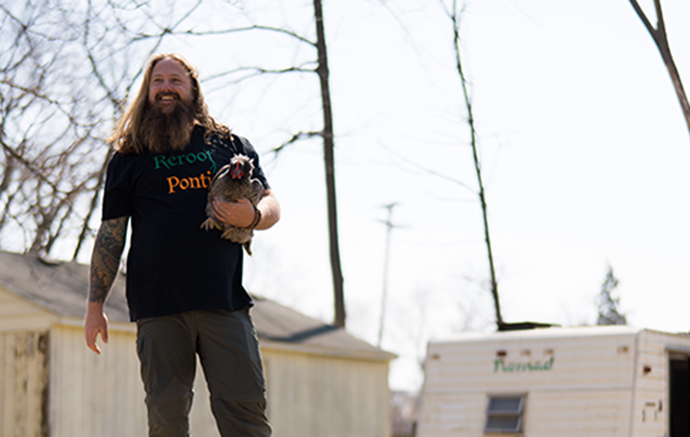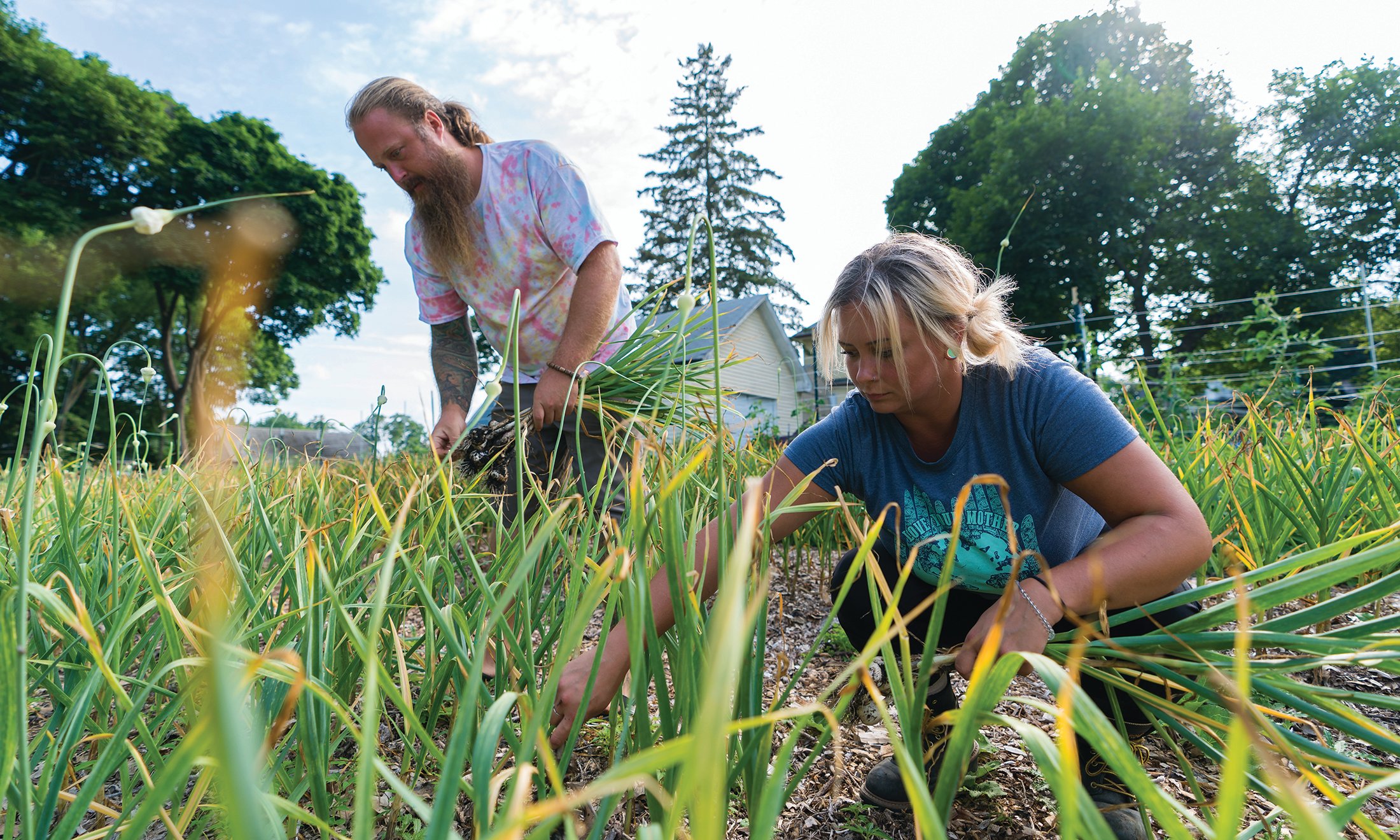Branching Out
Catching up with Jonathan Weyhrauch, Reroot Pontiac
 Last issue, we introduced our readers to Jonathan Weyhrauch, founder of Reroot Pontiac, a nonprofit organization that converts blighted properties to sustainable, environmental spaces. And while we learned a bit about Weyhrauch’s life, there is more to discover about the Reroot Environmental Network. Last issue, we introduced our readers to Jonathan Weyhrauch, founder of Reroot Pontiac, a nonprofit organization that converts blighted properties to sustainable, environmental spaces. And while we learned a bit about Weyhrauch’s life, there is more to discover about the Reroot Environmental Network. |
“Our goal is to build up the Reroot Environmental Network and take its initiative to other areas impacted by economic and environmental justice issues,” says Jon Ivar Weyhrauch, CAS ’15. “Our integrated style of education takes systems-based understanding and teaches communities about sustainability and public health.”
Reroot is ever-evolving. The nonprofit Pontiac-based organization has grown dramatically since its inception in 2016, currently occupying 64 lots that total 14 acres in the city’s neighborhoods. This much space requires constant maintenance. Reroot Pontiac normally relies on corporate partners, local businesses and community volunteers to help maintain the lot’s gardens, orchards and project construction. In 2020, however, Reroot took a big hit from the pandemic, losing nearly 100 percent of their funding and volunteer force.
“Pre-pandemic, GM would send out about 30 people regularly to help maintain lots and further projects,” he continues. “All that stopped during COVID, and now we’re just starting to pick back up. In fact, DTE is volunteering to come out and help finish some of the projects that have been on hold since the pandemic.”
Aside from corporate partnerships, Reroot Pontiac also finds help from Oakland University students and alumni. Most notably, the organization offers internships for students in a variety of majors, from marketing to biology. And students from OU’s nonprofit management program have volunteered to assist with grant-writing for funding proposals.
“It’s really important for us to have funding to complete these projects so we can get back to doing what we need to do,” says Wehyrauch.
Weyhrauch hopes to continue to expand Reroot beyond Pontiac, initially branching out into Detroit and Flint. He has seen firsthand the impact Reroot has on the Pontiac neighborhoods and strives to bring similar changes to other urban communities.
“Our main building sits on what was the heroin highway of Pontiac; 300 cars an hour went through to pick up heroin and there were 17 active heroin houses in this 6-block neighborhood,” Weyhrauch says. “We’ve watched this activity completely diminish. It’s been great to see societal development mirroring ecological development.”
Find out how to get involved with Reroot Pontiac.


 November 11, 2021
November 11, 2021
 By Kelli M. Warshefski
By Kelli M. Warshefski
